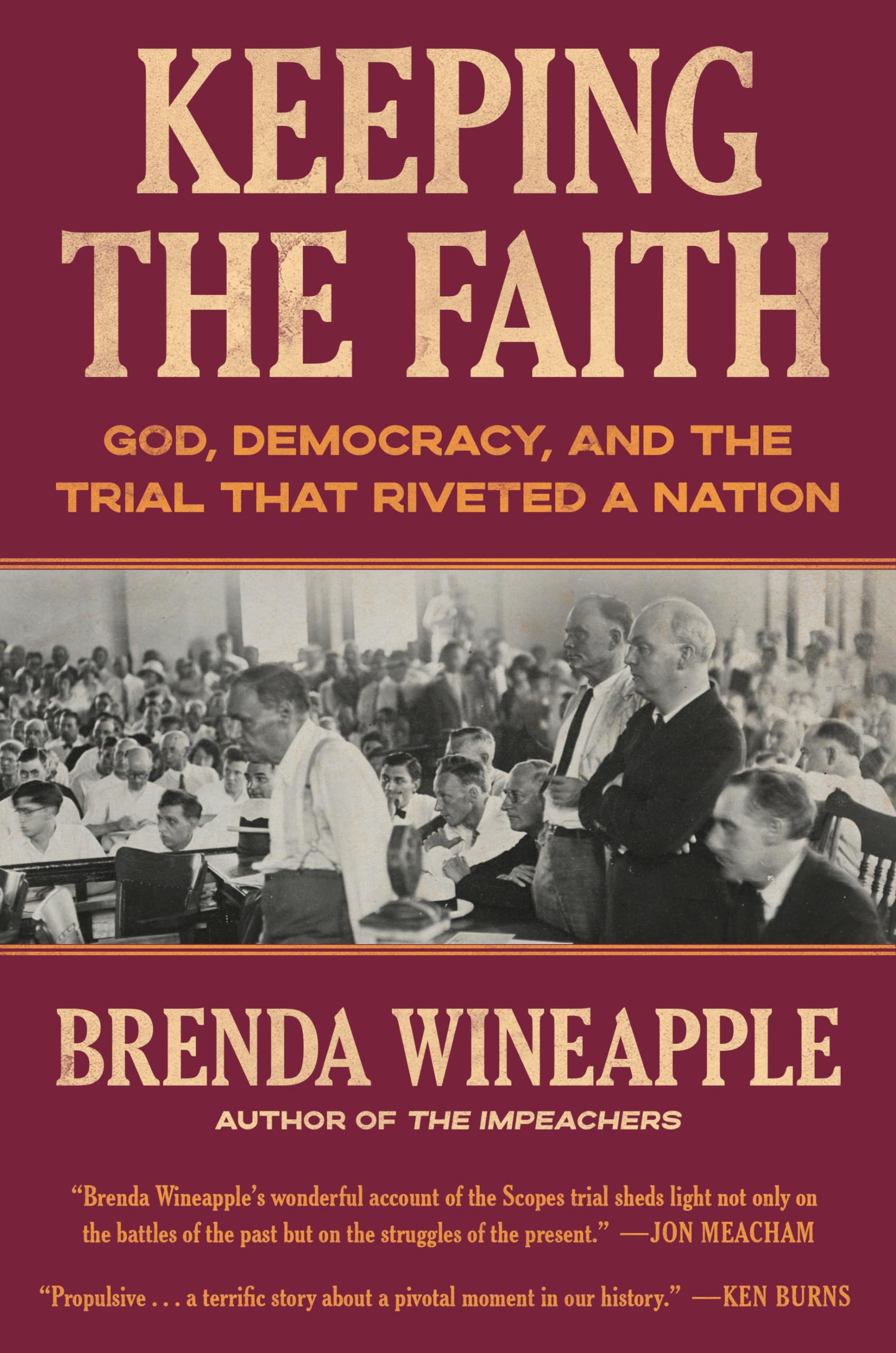Today the country is once again roiled by unsettling changes, and the fiercest culture warriors come from the parts of it that have lost out: regions like the Rust Belt, Appalachia, whose coal mines have shut down, and the southern and rural areas that have missed out on the tech boom enriching coastal cities like Seattle, Boston, and San Francisco. And today, again, it is men in these parts of the country who feel most under threat, as the election has just shown us.
The United States of 1925 could be a violent place. Seventeen Black people were lynched that year, and Klan membership was near its peak. However, one surprise for the reader of Wineapple’s book is that for all its drama, the Scopes trial provoked no such violence, even rhetorically. Despite their disagreements, Darrow and Bryan had known each other for years, and Darrow had supported Bryan in two presidential campaigns. Bryan volunteered as prosecutor out of Christian belief, not vindictiveness; he even offered to pay Scopes’s fine. Scopes readily agreed to be arrested and be the defendant in a case testing the new Tennessee law. Local businessmen offered to put up his bail, since no one wanted their children’s teacher in jail.
Despite the impression given by Mencken and other journalists that the townspeople were hillbillies hostile to anything modern and scientific, they welcomed both sides. The Dayton Progressive Club gave banquets for both Darrow and Bryan. Scopes himself attended the one for the Great Commoner, sitting across from the man Mencken had dubbed the “Fundamentalist pope.” “Bryan asked him if he was going to finish his corn and potatoes, and if not, he would,” Wineapple writes. It was all amazingly friendly.
Why the difference in tone between today’s bitter cultural battles and the one that took place in Tennessee in 1925? One factor, surely, was that no one was trying to turn the Scopes trial into a political campaign weapon. Bryan had not given up hope of making a final run for president, but he was a fundamentally decent man who was not planning to reach the White House on a wave of venom against his enemies. In today’s Florida, for example, Governor Ron DeSantis clearly hoped to do exactly that. Besides his attacks on any discussion of global warming, he introduced a bill allowing parents to sue school districts that teach “critical race theory” (defined quite broadly), signed a law banning abortions after six weeks, and purged the leadership of the state university system’s honors college. Reporters recently observed a dumpster on campus filled with discarded books from its now-closed Gender and Diversity Center. The governor’s reach for the presidential nomination failed, but all over the country candidates for everything from the presidency to school boards have weaponized culture war issues like trans rights, library books, and vaccines. By comparison, the Scopes trial looks as mannerly as a high school debate tournament.
